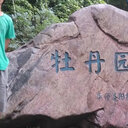Compound Astragalus and Salvia miltiorrhiza extract suppresses rabbits' hypertrophic scar by modulating the TGF-β/Smad signal.
Mots clés
Abstrait
BACKGROUND
Hypertrophic scar is a fibro-proliferative disease. Our previous studies demonstrate that compound Astragalus and Salvia miltiorrhiza extract (CASE) inhibits proliferation and invasion in keloid fibroblasts.
OBJECTIVE
To investigate the effects of CASE on hypertrophic scar.
METHODS
Rabbits were divided into the control, model and three dosage groups of CASE (0.94, 1.88, 3.76%). An animal model of hypertrophic scar was established and treated with CASE ointment or ointment base. The histopathological detection by hematoxylin & eosin and Masson's trichrome staining and protein expression of scars by Western blot were performed.
RESULTS
The hydroxyproline content was decreased under CASE treatment. Transforming growth factor beta 1 (TGF-β1) protein expression increased in the model group while it decreased under CASE treatment. The elevated expression of Smad4 protein was decreased under CASE treatment. Additionally, CASE promoted Smad7 protein expression.
CONCLUSIONS
CASE could inhibit formation of hypertrophic scar by modulating TGF-β/Smad signal and may be useful for the treatment of hyperplastic scars.



